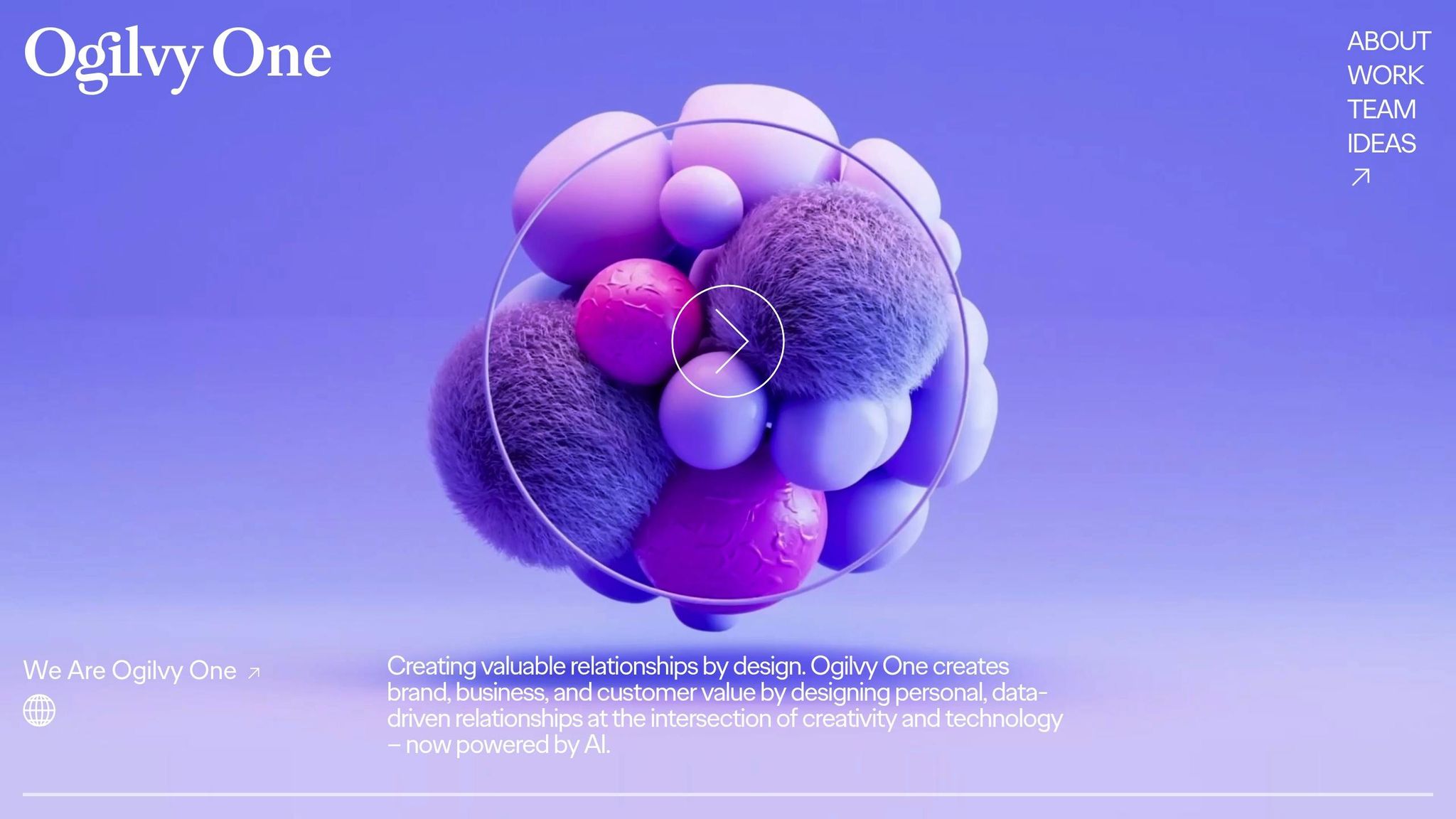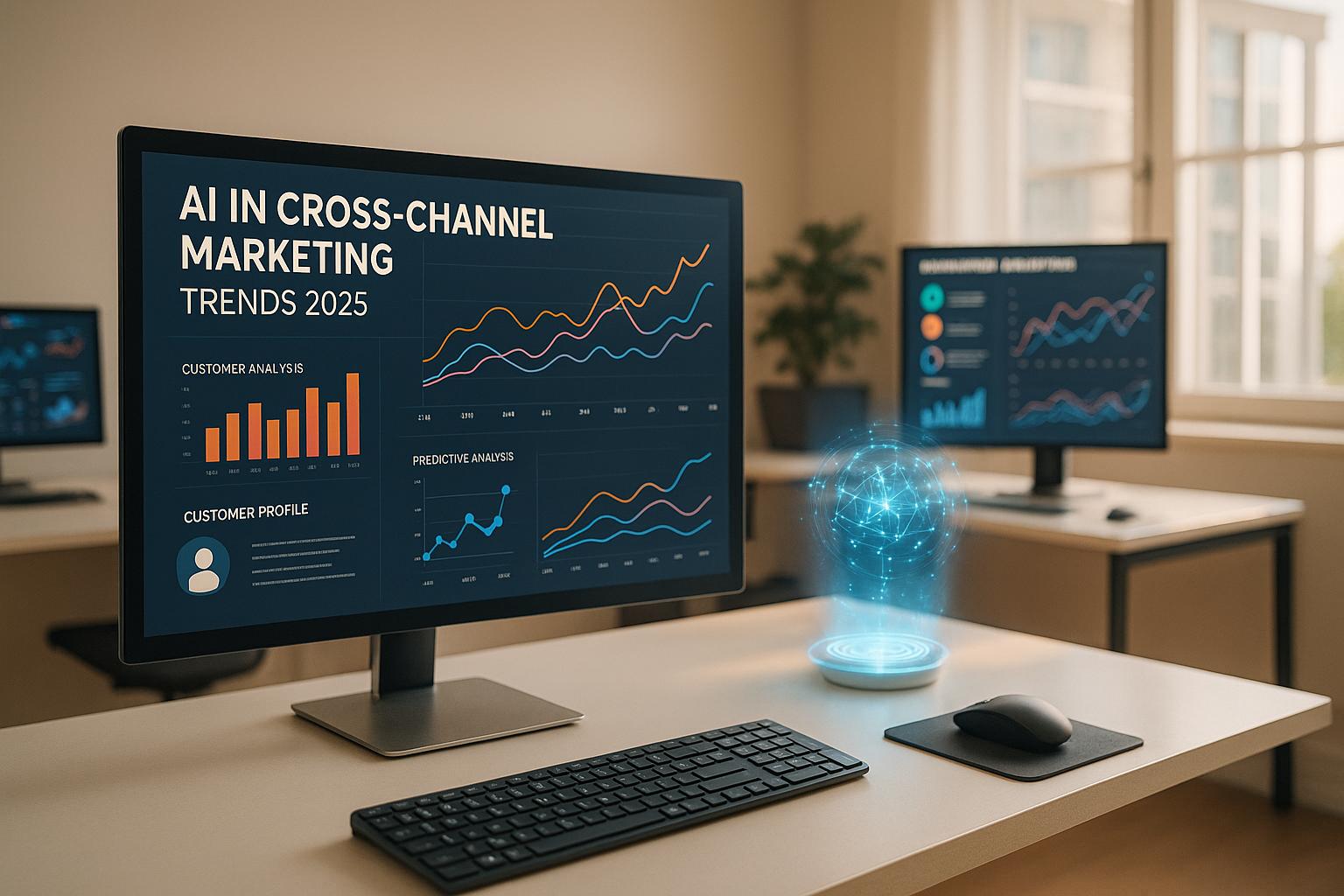AI personalization is reshaping the way agencies drive revenue. By 2025, businesses prioritize tailored customer experiences, and agencies offering these services can command premium pricing. The introduction of white-label AI solutions allows agencies to resell enterprise-grade tools under their own brand, achieving 2–4× markups without technical complexity.
Key opportunities for agencies:
- Real-time personalization: Serve dynamic content instantly based on user behavior.
- Predictive analytics: Anticipate customer needs to increase engagement and conversions.
- Large-scale personalization: Deliver consistent experiences across platforms for thousands of users.
- Revenue potential: Resell white-label solutions with scalable pricing models for recurring income.
Why it matters: White-label AI tools eliminate the need for expensive development and maintenance, allowing agencies to focus on growing their client base and delivering measurable ROI. Start offering cutting-edge AI personalization today to stay competitive in a booming market.
2977: AI-Driven Marketing and Personalization at Scale With OgilvyOne

Top AI Personalization Trends Agencies Should Know
The world of AI personalization is evolving quickly, opening up new ways for agencies to deliver tailored solutions for their clients. Staying on top of these trends isn't just about keeping up - it's about ensuring your agency is ready to meet shifting market demands while delivering results clients can measure.
Real-Time Personalization
Real-time personalization is changing the game by moving away from static content toward dynamic, adaptive experiences that respond instantly to user behavior. It processes user actions in the moment, delivering customized content that drives higher conversion rates.
Agencies can tap into white-label AI platforms to manage the heavy lifting of real-time processing, freeing up time to focus on creating strategic solutions for their clients.
Here’s how it works: AI builds dynamic user profiles that update continuously. When someone visits a website, the system analyzes their current session alongside their past behavior. Based on this, it serves up the most relevant content - whether that’s product recommendations, tailored messages, or even a site layout optimized for their device and browsing habits.
And it doesn’t stop there. Predictive analytics takes things a step further by anticipating what a customer might need next.
Predictive Analytics for Customer Behavior
Predictive analytics has become a key tool for understanding and anticipating customer behavior. By using machine learning to analyze data, it predicts customer needs and identifies the best times to engage.
This proactive approach allows agencies to create experiences that feel intuitive. Instead of simply reacting to user actions, predictive systems uncover patterns in customer journeys, purchase histories, and engagement metrics to forecast what’s next.
For agencies, this means more than just implementing technology - it’s an opportunity to offer strategic insights. Clients value partners who can interpret data and turn it into actionable strategies that drive results.
Predictive analytics also excels at pinpointing critical moments for engagement. For instance, it can predict when a customer might abandon their cart, identify the best time to send a promotional email, or spot when someone is ready to upgrade to a premium service. These micro-moments can make a big difference in outcomes.
As personalization becomes more advanced, agencies are also tackling the challenge of scaling these individualized experiences.
Large-Scale Personalization
Large-scale personalization solves the problem of delivering tailored experiences to thousands - or even millions - of users at the same time. Advanced AI systems make it possible to scale personalization efficiently while still delivering consistent, relevant experiences.
What makes this trend so impactful is its ability to maintain context across multiple platforms. Whether a user interacts via email, a website, a mobile app, or social media, AI ensures a seamless experience. This consistency not only boosts engagement but also reinforces brand identity.
For agencies, this eliminates the usual struggle between scaling up and maintaining quality. White-label AI solutions handle the complexities of managing countless user profiles, optimizing content in real time, and synchronizing across platforms. This allows agencies to focus on creative strategies and client outcomes instead of getting bogged down in technical details.
AI also extends into content creation and optimization. From personalized marketing messages to product descriptions and interface tweaks, these systems can generate a wide range of tailored content. What once required large teams and big budgets can now be achieved with automated tools.
⭐ Ready to Launch Your White-Label Business? Thousands of agencies, consultants, and solution providers have transformed their business models with white-label technology. Start offering enterprise-grade solutions under your brand today - no engineering needed. The payoff? Faster launches, higher profit margins, and a scalable service line that puts your brand front and center while trusted platforms handle the tech.
How Agencies Use AI Personalization
Agencies are tapping into AI personalization to deliver measurable results for their clients, turning advanced technology into genuine business opportunities. Here’s how they’re doing it.
Product Recommendation Systems
AI-powered recommendation engines are revolutionizing e-commerce by tailoring product suggestions to individual customer behavior. These systems analyze factors like past purchases, browsing habits, seasonal trends, and actions of similar users to deliver timely, relevant recommendations.
For instance, AI can identify complementary products for cross-selling or suggest premium alternatives for upselling, all while considering the customer's budget and preferences. Timing is key, and AI ensures recommendations are presented at the most effective moments - whether during browsing, at checkout, or in follow-up emails. This creates a seamless shopping experience that feels helpful instead of pushy.
By automating these processes, agencies can focus on crafting client strategies while the AI system continuously improves its accuracy through ongoing customer interactions. Beyond product recommendations, agencies are also using AI to transform websites into dynamic, personalized experiences.
Dynamic Website Content
AI-driven dynamic content takes websites from static to highly personalized, offering visitors an experience tailored to their behavior and preferences. This goes far beyond simple demographic targeting, creating interactions that feel uniquely relevant to each user.
For example, websites can automatically adjust headlines, images, and calls-to-action based on real-time behaviors, location, or device type. A mobile visitor might see a streamlined layout optimized for touch, while a desktop user might encounter a more detailed design with extra features. Even connection speeds are factored in, ensuring a smooth experience for every visitor.
This approach gives agencies the opportunity to offer ongoing optimization services. As the AI gathers data from visitor interactions, agencies can provide clients with actionable insights about customer preferences and behaviors, helping shape broader marketing strategies. Alongside dynamic websites, personalized email and ad campaigns further enhance engagement.
Personalized Email and Ad Campaigns
AI is raising the bar for email and ad campaigns by creating messages that resonate on a personal level. By analyzing customer data, AI tailors content, timing, and frequency to each audience segment.
Take email personalization, for example. AI optimizes subject lines by testing various approaches, learning which emotional triggers or benefit statements work best for different groups. It then applies these insights automatically to future campaigns. Emails also feature personalized product recommendations based on browsing history or purchase patterns, and promotional offers are aligned with individual price sensitivities.
Timing is another game-changer. AI pinpoints when recipients are most likely to engage - some prefer morning emails, while others respond better in the evening. This ensures messages land at just the right moment.
On the advertising front, AI extends personalization across multiple platforms, keeping the message consistent while adapting creative elements like images, headlines, and calls-to-action. Retargeting campaigns become more precise, too. For example, someone who abandoned a cart might see a reminder tailored to their specific stage in the customer journey, while a loyal customer exploring new categories gets a different message altogether.
The best part? AI continuously learns from engagement data, refining its strategies without requiring manual adjustments. This means campaigns keep getting smarter and more effective over time.
⭐ Ready to Launch Your White-Label Business? Thousands of agencies, consultants, and solution providers have already transformed their business models with white-label technology. Start offering enterprise-level solutions under your brand today - no coding or engineering required. The result? Faster launches, better margins, and scalable services that keep your brand at the forefront while proven platforms handle the heavy lifting.
Common AI Personalization Challenges for Agencies
AI personalization holds immense potential, but it’s not without its hurdles. Agencies often encounter obstacles that can disrupt projects and strain client relationships. Tackling these challenges requires a combination of smart planning and setting realistic goals.
Data Privacy and Legal Compliance
Navigating data privacy laws like GDPR, CCPA, and the EU AI Act is a major challenge for agencies. AI systems thrive on data, but strict regulations demand careful handling. Agencies must secure informed consent, balance data minimization with the need for detailed analytics, and address the complexities of opaque "black box" algorithms. These factors not only complicate compliance but also risk reinforcing biases within AI systems.
Connecting AI Tools with Current Systems
Another significant challenge lies in integrating AI tools with existing systems. Many agencies operate with legacy infrastructures, and incorporating new AI solutions often requires careful alignment with established workflows. White-label platforms can help streamline this process by fitting seamlessly into current operations. Successfully addressing these integration hurdles is key to unlocking the full potential of AI-driven personalization.
How Agencies Can Profit from White-Label AI Solutions
With AI personalization reshaping client demands, white-label solutions offer agencies a way to thrive in this booming market - all while keeping their brand at the forefront. These solutions allow agencies to deliver cutting-edge AI tools without the burden of technical complexity.
Benefits of White-Label Branding
White-label AI solutions position agencies as full-service technology providers. Instead of sending clients to external platforms, agencies can deliver AI personalization tools directly under their own brand. This creates a seamless, end-to-end experience for clients, from initial consultation to ongoing support, while reinforcing the agency's brand identity.
By featuring their logo on client dashboards and managing support in-house, agencies strengthen trust and build deeper client loyalty. This approach not only enhances relationships but also makes it harder for clients to switch providers, boosting long-term retention.
Revenue Models and Profit Margins
Leveraging white-label solutions, agencies can tap into highly profitable pricing models. Here's an example of how agencies can structure their offerings:
| Plan | Wholesale Cost | Features | Agency Upsell |
|---|---|---|---|
| Starter | $49/mo | Chatbot + CRM basics | Resell at $149+ |
| Growth | $149/mo | Automation suite | Markup: 2.5× |
| Pro | $299/mo | White-label dashboard | Markup: 3–4× |
| Enterprise | Custom | Dedicated infra/support | High-ticket deals |
This setup works because AI personalization delivers clear results - like higher conversion rates and improved customer lifetime value. These measurable outcomes make it easier for clients to justify premium pricing. Some agencies even add performance-based fees to their base monthly charges, tying their success to client outcomes and driving higher overall contract values.
Scaling Services Without Overhead
Scalability is another key advantage of white-label AI solutions. Unlike traditional AI systems that demand expensive technical hires, these solutions provide enterprise-grade technology without the added overhead. Agencies can expand their client base without a proportional increase in staffing or infrastructure costs.
For example, a single account manager can oversee multiple deployments, as the technical heavy lifting is handled by proven platforms. This allows agencies to replicate successful AI personalization strategies across clients with similar needs, enabling rapid growth without stretching resources thin.
Ready to Launch Your White-Label Business?
Thousands of agencies, consultants, and solution providers have already transformed their business models with White Label AI Solutions. Start offering enterprise-grade tools under your own brand today - no engineering required. This means faster launches, higher profit margins, and a scalable service line that keeps your brand front and center while trusted platforms handle the technical complexities.
The Future of AI Personalization for Agencies
AI personalization is advancing rapidly, and forward-thinking agencies are well-positioned to capitalize on these changes. Hyper-personalization is no longer a luxury - it’s the new standard. Clients now expect experiences that adjust in real time based on individual behaviors, preferences, and contexts. As technology continues to evolve, the way agencies engage with customers will undergo significant changes.
Voice and conversational AI are set to revolutionize how businesses interact with their audiences. Imagine chatbots that not only answer questions but also predict customer needs and guide them through personalized journeys across various platforms - websites, mobile apps, and even social media. Agencies that adapt to this shift will stay competitive and relevant.
At the same time, privacy-first personalization is reshaping the landscape. With tighter data regulations and growing consumer concerns, agencies face the challenge of delivering tailored experiences while minimizing data usage. Striking this balance will be critical for building trust and compliance.
Another game-changer is the democratization of AI, which is making advanced personalization tools accessible to smaller businesses. Agencies offering affordable, high-quality solutions will gain a competitive edge. This is where white-label platforms become indispensable. They provide the sophisticated infrastructure needed to support a growing client base without requiring massive development costs.
Clients increasingly demand seamless experiences across email, web, mobile, and social channels. Managing this complexity requires robust backend systems, which white-label solutions excel at providing. These platforms simplify integrations and allow agencies to deliver scalable, personalized services efficiently.
Platforms like InnovaAI.io are already paving the way by offering tools that streamline technical complexities. Agencies can focus on building client relationships and implementing strategies without the burden of significant upfront investments. By using such platforms, agencies can stay ahead of emerging trends while maintaining profitability.
The agencies that combine a deep understanding of their clients with flexible, proven platforms will lead the way in delivering cutting-edge AI personalization. White-label solutions enable these agencies to offer advanced capabilities today while ensuring sustainable growth and healthy profit margins tomorrow.
FAQs
How can agencies seamlessly integrate white-label AI solutions into their current workflows without causing disruptions?
Agencies can easily incorporate white-label AI solutions by leveraging tools like APIs, plug-ins, or middleware that are designed to integrate with their existing systems. These tools allow the AI technology to fit naturally into current workflows, minimizing disruptions and keeping operations running smoothly.
Customization and branding play a crucial role here. By adjusting the AI solution to meet specific operational requirements and aligning it with established processes, agencies can ensure a seamless transition. This approach not only boosts efficiency but also helps maintain consistency across all operations.
What are the main advantages of using predictive analytics in AI personalization to boost customer engagement and drive conversions?
Predictive analytics gives businesses the ability to foresee customer needs, allowing them to craft highly personalized experiences that deepen engagement and drive more conversions. By studying customer behavior and preferences, companies can create tailored marketing messages, optimize customer journeys in real time, and implement automated personalization strategies.
These tools not only enhance customer satisfaction and loyalty but also deliver measurable outcomes. Businesses that integrate predictive analytics into their AI personalization efforts can make quicker decisions, improve targeting precision, and significantly enhance their marketing ROI. It's a critical component of today’s customer engagement strategies.
How can agencies stay compliant with data privacy laws while using AI personalization tools?
Agencies can maintain compliance with data privacy laws by adopting essential practices like using robust data encryption, enforcing tight access controls, and conducting frequent security audits. These measures are vital for protecting sensitive information while working with AI tools.
It's also crucial to align with regulations such as the GDPR and CCPA, which emphasize transparency in data collection, storage, and usage. By offering clear disclosures to users and establishing compliance protocols for AI systems, agencies can minimize privacy risks and strengthen trust with their clients.


